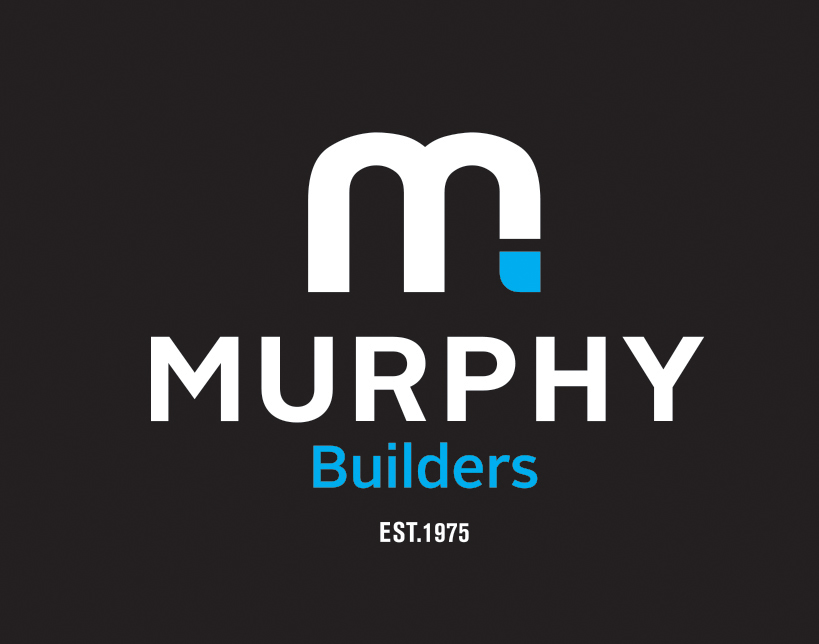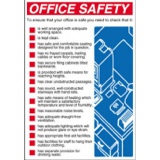Information
-
Audit Title
-
Document No.
-
Client / Site
-
Conducted on
-
Prepared by
-
Location
-
Personnel
Sanitation and Hygiene - Design and Construction of Premises
-
Is the structure and fabric of the premises, together with all the machinery, equipment and fittings, constructed of materials and be so designed that they are capable of being efficiently cleaned and disinfected?
-
Is wall protection installed to prevent damage that can result in poor cleanability?
-
Is there no planned layout changes?
Sanitation and Hygiene - Transport
-
Are vehicles suitable for transport of food products?
-
Are vehicles well maintained?
-
Are vehicles kept clean?
-
Are vehicles clean, free from pest and chemical contamination, free from foreign items or any other form of contamination?
-
Are delivery vehicles closed off and protected?
Sanitation and Hygiene - Storage
-
Is there separate and adequate storage capacity for different requirements?
-
Are chemicals used for cleaning stored in a secure, ideally locked area that is physically separated from food, raw materials, packaging and finished goods?
-
Are all goods stored on pallets, off the floor and away from walls?
-
Is adequate racking provided?
Sanitation and Hygiene - Prevention of contamination by Glass and Hard Plastics
-
Is a formal policy in place governing the prevention of contamination by glass and glass-like materials and hard plastic?
-
Has a documented survey and risk assessment been done on all glass, glass-like and hard plastic with a register compiled?
-
Are documented glass/hard plastic checks done on items listed in the register at a frequency dependent on risk?
-
Is glass minimized within food production facility and where not possible to replace is suitable glass protection provided?
-
Is a written breakage procedure in place?
-
Have staff members been trained against glass and plastic breakage procedure?
-
Is a breakage and clearance incident recording system in place?
-
Was there no stoppages in production as a result of glass/hard plastic breakage recorded in the last month?
-
Is glass breakage replacement work done in the facility managed and controlled?
Sanitation and Hygiene - Hygiene Planning and Documentation
-
Are cleaning programs in place?
-
Are cleaning work instructions in place for all planned cleaning?
-
Are all cleaning work instructions documented on a programme, detailing daily, weekly, monthly, quarterly and annual cleaning?
-
Are cleaning procedures and records frequently reviewed?
Sanitation and Hygiene - Training
-
Have all cleaners been trained in detail against work instructions?
-
Are cleaners frequently assessed on their effectiveness in carrying out cleaning tasks?
-
Were there no changes to cleaning work instructions or routines in the last month?
-
Did cleaners sign training records?
-
Has cleaning training been conducted within a year of this internal audit?
Sanitation and Hygiene - Cleaning Supervision and Methods
-
Are personnel carrying out the cleaning effectively supervised?
-
Do cleaning supervisors/managers check cleaning jobs both during and on completion to ensure satisfactory standards are achieved?
-
Are standards to be achieved signed off by a responsible member of management to confirm acceptability of standards?
-
Are cleaning standards in general acceptable and do records match this acceptability?
Sanitation and Hygiene - Assessment of Finished Cleaning Standards
-
Does an independent member of the factory management team, who has sound knowledge of the factory and the standards required, check finished cleaning standards at an appropriate frequency?
-
Are records of checks, including corrective action in the event of unsatisfactory standards maintained?
-
Is the hygiene system reviewed on an annual basis?
-
Is the hygiene maintained where applicable?
Sanitation and Hygiene - Cleaning Equipment
-
Is equipment used for cleaning fit for purpose of use?
-
Is cleaning equipment color coded to distinguish between uses and areas?
-
Is cleaning equipment part of a regular cleaning and disinfection regime?
-
Is cleaning equipment stored in such a manner as to prevent contamination and ensure good hygiene?
-
Is cleaning equipment storage areas fit for the purpose thereof?
Sanitation and Hygiene - Cleaning Chemicals
-
Does the chemical supplier have ISO9002 or equivalent certification?
-
Do chemical suppliers have the SABS permit to apply the certification mark SABS1828:2000 for cleaning chemicals for use in the food industry and/or SABS 1853:2001 for disinfectants and detergents for use in the food industry?
-
Are Material and Safety Data Sheets in place?
-
Is there a copy of MSDS in the chemicals room?
-
Are containers color-coded to assist with easy identification of product types?
-
Are containers labelled with a pre-printed laminated label containing information as per GMP?
-
Is a chart for correct dilution of chemicals displayed in chemical storage room?
-
Are containers issued to cleaning staff clearly marked with name and type of chemical, date and dilution?
Sanitation and Hygiene - Equipment Cleaning
-
Are key requirements in place where food processing equipment are cleaned?
-
Are equipment cleaning procedures in place?
-
Are equipment cleaning procedures designed, controlled and maintained to ensure adequate cleaning of equipment?
-
Are detergents and disinfectants used for cleaning equipment fit for purpose?
-
Is equipment used for cleaning of machines fit for purpose and properly maintained?
-
Is cleaning of equipment efficient?
-
Are routine operational checks conducted at frequencies based on the operational characteristics of the equipment, as well as established risk and manufacturer's recommendations?
-
Are detailed records of cleaning readily available and up to date according to cleaning frequency?
-
Are detailed cleaning procedures for factory equipment available?
-
Are machine operators trained against cleaning procedures?
Sanitation and Hygiene - Pest Prevention and Control
-
Is a suitable pest prevention and control system in operation?
-
Does the scope of pest control and prevention cover the whole site?
-
Is documentation specific to the site and readily available for review by any auditor or technologist?
-
In the past month, no infestations have been observed that could have caused contamination in the finished product, raw materials and/or packaging material?
-
No issues have been reported and logged in the past month?
-
No pest sightings observed?
-
Is a contractor used that meets all the relevant legal, governmental or in-house requirements?
-
Is an organization chart available that clearly shows the senior management team and operational management team, and are phone numbers including emergency contacts available?
-
Does the contractor have a training facility available to them which meets at least NCPC or National Certificate in Pest Control Standards?
-
Are service technicians fully trained to have at least six months practical experience prior to assuming responsibility for operations?
-
Does the contractor have ready access to an Entomologist, Biologist, or other suitably qualified and experienced person, and have a speedy pest identification service available to clients?
-
Can contractor demonstrate methods to keep up to date on new products and developments relating to pest issues as well as legislative changes?
-
Do the contractors provide proof of compliance to compensation requirements?
-
Do contractors comply with personal,public and environmental safety requirements?
-
Have contractors confirmed in writing that pest control facilities are available 24 hours per day, 7 days per week?
-
Is contractor manager specifically allocated and meets with relevant site manager at least twice per year to discuss pest control and prevention standards?
-
Is there a contractors service agreement and is it specific to the site?
-
Are a minimum of 8 annual inspections done, every 5 to 7 weeks at least?
-
Are follow up visits conducted?
-
Are quarterly in-depth inspections conducted by a suitable auditor?
-
Are at least one night audit done per year?
-
Is a detailed, controlled and dated floor map of the factory in place in the Ecolab file?
-
Is a departmental checklist contained in the front section of the management file?
-
Are detailed monitoring logs provided for rodent, insect monitors and electric fly killing units, fly bags or any other monitoring or control devices?
-
Is trend analysis conducted on pest activity?
-
Is a pesticide usage log provided?
-
Are detailed action reports provided?
-
Are bait blocks used and no liquid/powder/acute baits unless justified and controlled?
-
Baits retained in a locked or inaccessible bait box?
-
Does cockroach activity treatment follow a logical series of steps?
-
Are breeding sites for both insects and rodents prevented both inside and outside?
-
Is treatment for flying insects controlled to prevent contamination of facility, packaging and product?
-
No pest activity sighted during this audit?
-
No pest proofing issues noted in the audit?
Sanitation and Hygiene - Training of general staff members
-
Have all staff members undergone hygiene training?
-
Are records available for hygiene training?
Sanitation and Hygiene - Personal Practices
-
Are sufficient washing facilities provided with a continuous supply of water at a suitably controlled temperature minimum 45C?
-
Are hand washing facilities located at all entrances to production areas and at easily accessible locations throughout the factory?
-
Are hands washed before starting work and as necessary throughout the day?
-
Are open cuts, abrasions or burns covered with ideally a metal detectable blue waterproof dressing?
-
Are suitable areas with adequate ventilation available for smoking?
-
Is a suitable policy restricting the wearing of jewelry in place?
-
No eating is allowed in areas other than designated therefore?
-
No personal items are taken into production, storage or engineering areas?
-
No heavy perfume/aftershave/false eyelashes/false fingernails?
-
Are all visitors and contractors made aware of the company's personal hygiene standards and do they sign to indicate their acceptance and understanding of the company rules?
-
Do all staff members have a set of personal hygiene rules/standards which they must sign to indicate acceptance of company rules?
Sanitation and Hygiene - Medical Screening
-
Do all employees complete a medical questionnaire prior to employment to assess their fitness for work in a food manufacturing environment?
-
Is there a suitable policy in place covering return to work after leave/sickness and where applicable foreign travel?
-
No investigations of any food borne illnesses of staff carried out?
-
Do all external visitors to food factory complete health assessment prior to entering factory?
-
Is a document available detailing all aspects of the company's health screening policy?
Sanitation and Hygiene - Staff Ameneties
-
Are suitable staff toilets provided, including hand wash basins, soap dispensers and paper or continuous cloth dispenser systems?
-
Are staff provided with suitable lockers in which to store personal items?
-
Is a suitable canteen provided for staff in which food can be stored and consumed?
-
Is food prepared and cooked for staff and do management ensure good GMP, hygiene and housekeeping standards that mirror factory?
Sanitation and Hygiene - Inspection point
-
Green coffee area - pallets
-
Green coffee area - dumping hole
-
Green coffee area - floor and walls
-
Green coffee area - general
-
Factory - general
-
Factory - conveyors, cable trays and piping
-
Factory - silos
-
Factory - Lilla equipment
-
Factory - control room
-
Factory - packaging equipment
-
Factory - grinder
-
Factory - mixers and hoppers
-
Factory - compressors, db boxes and pneumatic systems
-
Factory - tools and ladders
-
Factory - coffee bins and crates
-
Factory - walls and floors
-
Factory - X-ray machine
-
Factory - logs and checlists
-
Factory - CCP1
-
Factory - CCP2a
-
Factory - CCP2b
-
Factory - product storage and labelling
-
Factory - heat sealer
-
Factory - general
-
Hygiene room - basin and general
-
Hygiene room - stock and dispensers
-
Labeling area
-
No boxes inside factory?
-
Rejects stored in appropriate manner?
-
Reject stock area available?
-
Stock clearly marked and date coded?
-
Traceability systems in place?
-
Kitchen hygiene?
-
Canteen
-
Ladies change rooms
-
Men's change rooms
-
Uniform store room
-
Moisture corridor
-
Laundry
-
Chemical store room
-
Outside area - top
-
Outside area - bottom
-
Outside area - outside rooms
-
Waste removal













